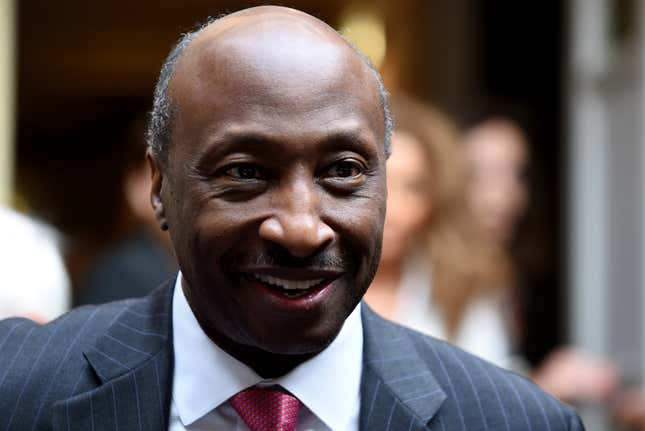
Recruitment startup OneTen has joined forces with 37 major companies to employ 1 million Black people over the course of the next 10 years.
NBC News reports that Comcast, Nike, and Target are among the companies that have agreed to work with OneTen on this endeavor. The coalition will focus on finding sustainable careers for Black people without four-year degrees. “Many times, companies require four-year degrees for the kinds of jobs that really do not require a four-year degree,” Merck CEO Ken Frazier, co-founder of OneTen and just one of five Black CEOs in the Fortune 500, said in an interview with CBS News.
As someone who has a four-year degree and worked that 9-5 life for most of my adult career, I can firmly attest to the fact that there are many, many job listings that require a four-year degree for work that really doesn’t need it. Like on the real, how is an undergraduate degree needed for basic paperwork jobs? You don’t need to go to college to learn how to use a copier, dammit.
OneTen’s mission is to create a system that connects employers with non-profits, community colleges, and trade schools to not only get more Black people in these jobs, but to also ensure that they are given the resources needed to truly succeed in these environments. The hope is that these steps will help improve the stunning lack of diversity in corporate America.
From NBC News:
The corporate world has long had a diversity problem. One side effect of systemic racism in the U.S., is that Black people account for 8 percent of white-collar professional employees, according to a report from the Center for Talent Innovation. Furthermore, only 3.2 percent of executives, senior-level officials and managers are Black, the researchers found.
Meanwhile, Black people are more than twice as likely to live below the poverty line than white people, according to the U.S. Census Bureau’s Current Population Survey, even though the poverty rate for Black people reached a historic low in 2019.
Inequitable access to well-paying jobs has generational consequences, too, as Black children born to parents in the lowest income bracket have just a 2.5 percent chance of ever leaving it.
Both Frazier and fellow OneTen co-founder, IBM’s Ginni Rometty, understand that this disparity doesn’t stem from a lack of talent or ability in the Black community. “It’s just a lack of access,” Rometty told CBS News. There is hope that these jobs will lead to upward mobility and allow Black people to rise through the ranks in these companies.
No lie, this is a really cool endeavor. I’ll never complain about more Black people making money. My only concern is that we keep seeing all these initiatives pop up about hiring more Black people, but not a lot of conversation about why these initiatives have to happen. Corporate America historically hasn’t been kind to Black folks and I simply hope that these shifts in hiring practices will also be buoyed by shifts in culture. Otherwise, it could just be a two steps forward, one step back situation. The fact that there is a Black person heading this does give me hope, though.
Frazier is optimistic about the endeavor, saying it could be instrumental in America’s road to economic recovery from the ongoing coronavirus pandemic. “We can rebuild our country coming out of this pandemic. And if private companies decide that they’re going to hire, as we rebuild our economy, with an equity lens, then we’ll change the country,” Frazier said.

